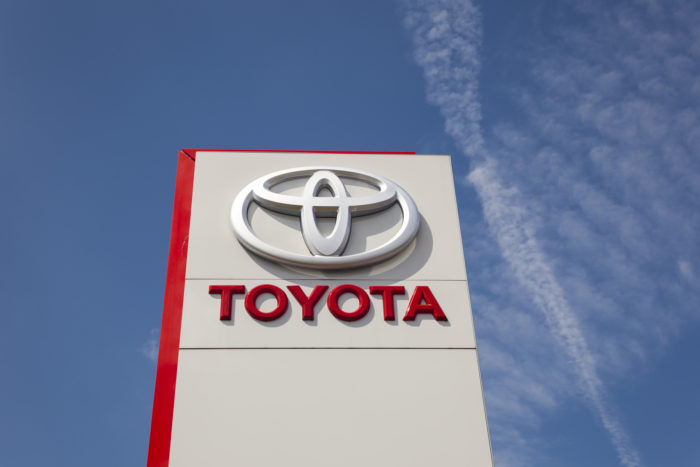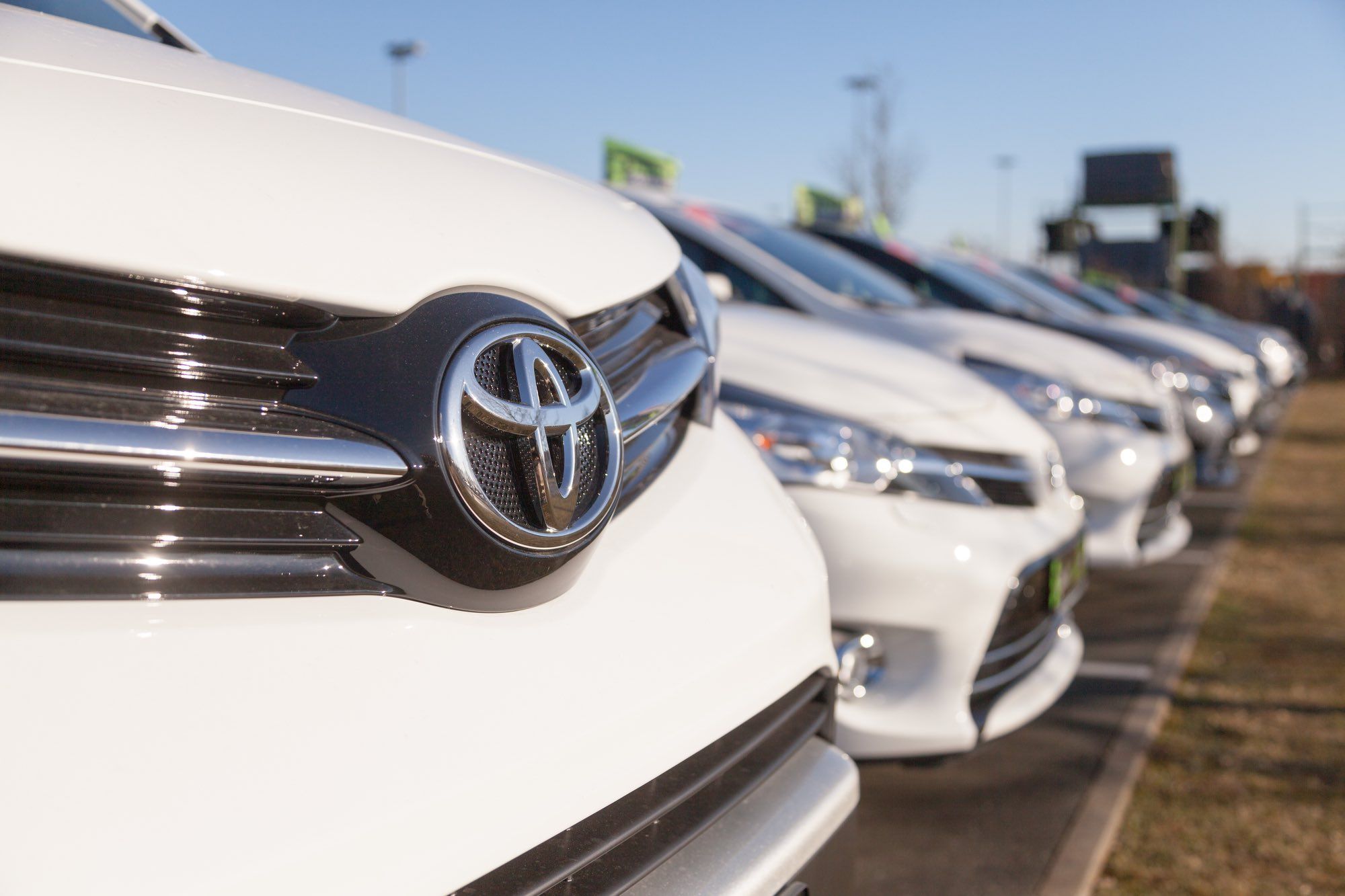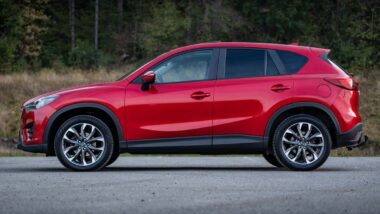Top Class Actions’s website and social media posts use affiliate links. If you make a purchase using such links, we may receive a commission, but it will not result in any additional charges to you. Please review our Affiliate Link Disclosure for more information.
A Toyota fuel injection pump class action lawsuit argues that some Toyota and Lexus vehicles possess defective fuel pumps.
The pumps allegedly can undergo pressure loss and cause a systemic fuel system failure. Allegedly, a Toyota fuel pump recall issued by the company has yet to remedy the problem.
The Toyota fuel pump recall class action lawsuit was filed by Lenard Shoemaker, a Scranton, Pennsylvania resident. He explains that around June 4, 2018 he purchased a Toyota Tundra for approximately $50,000.
Allegedly, the vehicle’s fuel delivery system was defective at the time of purchase, but neither the manufacturer nor the dealer informed him of this.
According to Shoemaker, he brought his vehicle in for an unrelated service, and while he was there, asked about the recall that Toyota had implemented to deal with the alleged fuel pump injection problem.
The Toyota fuel pump recall class action lawsuit goes on to say that the dealership staff told Shoemaker that they were aware of the recall, but explained that Toyota did not have a fix for the defect.
Shoemaker says that he was financially injured by Toyota’s failure to inform him of the defect. He says he purchased his vehicle specifically because Toyota has a reputation for producing well-made vehicles. He says that if he had known that the vehicle was defective, he would not have purchased it or would not have paid as much as he did for it.
Providing an example of how the alleged fuel pump defect impaired his enjoyment of the vehicle, Shoemaker notes that he wanted to take his Toyota Tundra to go fishing in Canada, but was worried about the vehicle’s performance, and the risk that it could fail during use.
Shoemaker explains that the impellers of the fuel pump either have a lower surface strength or were exposed to drying for a longer period of time, which can cause the surface to crack. Allegedly, this cracking may cause excess fuel absorption, which can in turn, further damage the impellers. This damage to the impellers can worsen to the point that the fuel pump becomes imperative, says Shoemaker.
This problem then can cause the check engine light to illuminate, cause the engine to not run smoothly, or not start at all, says Shoemaker. He goes on to say that the Toyota defect can reportedly cause the vehicle to stall while driving at a low speed. Less commonly, the vehicle can stall while driving at higher speeds, increasing a crash risk.
The Toyota fuel pump recall class action lawsuit says that in addition to financially injuring customers, this defeat can put drivers and others at risk for physical injury or death if their vehicle malfunctions during use.
The Toyota fuel pump recall class action lawsuit provides context for the alleged fuel pump failures, explaining that Toyota sources many vehicle components from Denso Corporation, a Japanese auto parts supplier. The fuel pump pressure failure class action lawsuit explains that Toyota is the largest shareholder of Denso, owning 24 percent of the company.

Shoemaker says that Toyota issued a report in 2019 that articulated that the company started to investigate the low pressure fuel pumps.
By January 2020, 66 Field Technical Reports produced by Toyota explain the problem.
In the spring of 2020, Toyota reportedly implemented a recall in an attempt to deal with the problem.
However, the Toyota defect class action lawsuit says that despite the recall, Toyota has not yet fixed the vehicles. Instead, Toyota has left customers to drive the recalled vehicles, putting its customers at further risk.
Have you purchased or leased a Toyota? Share why you chose your vehicle in the comments below.
Shoemaker is represented by Noah Axler of Axler Goldich LLC; and by Steve W. Berman, Thomas E. Loeser, and Jerrod C. Patterson of Hagens Berman Sobol Shapiro LLP.
The Toyota Defect Fuel Pump Class Action Lawsuit is Lenard Shoemaker v. Toyota Motor North America Inc., et al., Case No. 3:20-cv-00869-JEJ, in the U.S. District Court for the Middle District of Pennsylvania.
Read More Lawsuit & Settlement News:
NJ Campaign Volunteer Katie Brennan Secures $1M Sexual Assault Settlement
ATTORNEY ADVERTISING
Top Class Actions is a Proud Member of the American Bar Association
LEGAL INFORMATION IS NOT LEGAL ADVICE
Top Class Actions Legal Statement
©2008 – 2024 Top Class Actions® LLC
Various Trademarks held by their respective owners
This website is not intended for viewing or usage by European Union citizens.
















28 thoughts onToyota Class Action Alleges Defective Fuel Pump
I am reviewing all of the comments about the Toyota fuel pump recall. It’s absolutely shocking to me reading what happened all these people because the exact thing happened to me and my husband in South Carolina November 20 20 and then again January 2021. We were fortunate enough to have it repaired but it resulted in unbelievable convenience loss of work time additional expense and it’s amazing anxiety. I wrote two letters to the Toyota complaint system and didn’t even have the courtesy of a reply. We finally got a recall in the mail just this week October 2021 what the heck took so long for this dangerous defect to be identified. We could’ve very easily been killed our car stopped on the interstate Highway 65 miles an hour with trucks zooming past us unbelievable. I’m sorry this is happening to all the people and I am going to investigate more. Thank you for this opportunity to emote.
I have a 2019 Toyota Camry SE that had just had the fuel pump replaced. Getting onto freeway 99, I floored it and it stalled for several seconds. Had the left lane not opened up for a semi truck headed straight towards me, I’d be dead. It still stalls at stop lights and signs.
I like everyone here purchased a Toyota. I bought it new end of July in 2019. No one said a word about faulty anything in fact they kept telling me how great a deal I was getting. This car is a MAJOR disappointment. I’ve had a Toyota since college that had more power when I graduate from high school in 1980. Yes, the year is correct!! I’m waiting for fuel change as I write this. The engine sounds like it’s going to tear up every time I start this lemon. When driving you have to put your foot in the gas tank or recover from an unexpected surge in speed. The apply break sensor has been jumps on at times while I’m pressing down hard on the brake but I’m not breaking the car feels like it’s speeding up. Had they said something about this fuel pump in 2019 as I’m purchasing this lemon, I’d have NEVER even looked at it let alone to it home with me. I have a good mind to trade this car in and suffer the great loss rather than live my life in fear of another incident after they change the pump. For all I know, the fuel pump they are putting in may be just as faulty or worse! Even so how do you trust anything Toyota tells you after this. They should allow every purchaser of a car with this faulty pump REFUNDS. I need a car I’m not afraid ? to drive. Now I’ll always wonder what else I don’t know about my car. If anybody knows of a way I can get out of this death trap, please let me know. Seriously!!!
I bought a 2020 corolla in January 2020. I was not informed of the recall in my car and still have not been informed even though it’s in the shop again (I believe for the 7th time this year) due to problems. So in less than a year and half, with only 18,000km (not miles) I’ve been without a vehicle multiple times. I’m only offered a rental when repairs are longer than 48 hours which means I have no means of transportation.
I’m having the issue with my engine and told them about it stalling out, including on an on ramp for the highway. I was told my engine sounded normal. I was brushed off time and time again about the sounds it was making and it stalling out, along with “ignition off’ warning signs and “power steering low” while driving despite the engine sometimes still running. These are serious issues that could have caused multiple accidents for me. There was also a defective air conditioning unit that took over 2 weeks to repair.
So in 1.5 years of owning my brand new 2020 corolla I’ve been with a rental vehicle twice for extended repairs.
I wish I never bought this vehicle. What an absolute disgrace of a company. They’ve known about this recall since the day I bought my car and brushed it off and allowed me to drive and out myself in danger.
We just bought our Honda and both vehicles don’t seem right.